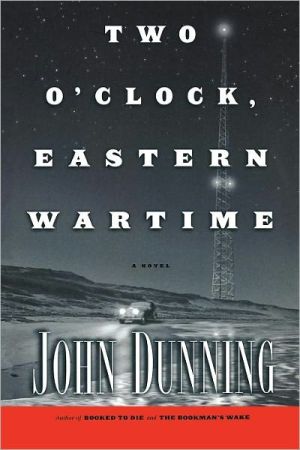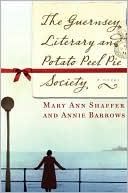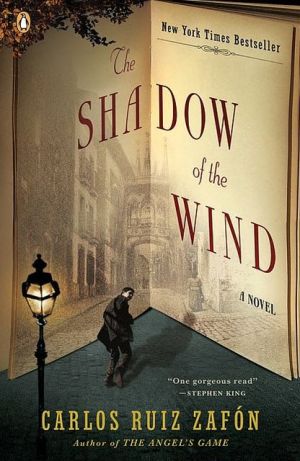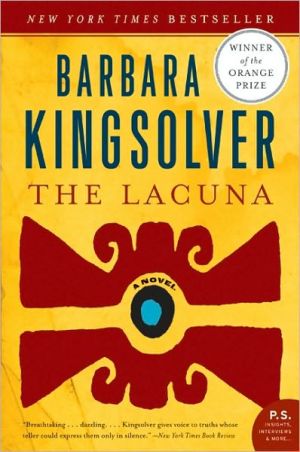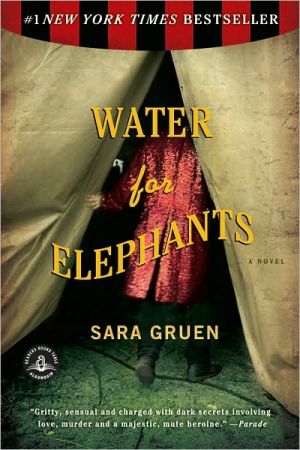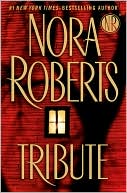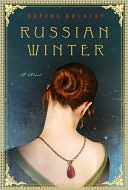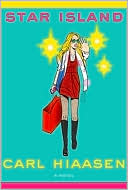Two O'Clock, Eastern Wartime
Widely acclaimed for his groundbreaking crime novels Booked to Die and The Bookman's Wake, award-winning author John Dunning triumphantly returns with a riveting new thriller that takes us back to the summer of 1942, when radio was in its prime, when daylight saving time gave way to "wartime," when stations like WHAR on the New Jersey coast struggled to create programming that entertained and inspired a nation in its dark hour.\ Into this intense community of radio artists and technicians in...
Search in google:
It is the summer of 1942. It is wartime. Radio stations like WHAR, in the seaside town of Regina Beach, New Jersey, struggle to inspire the nation. Writer Jack Dulaney's zeal for radio is exceeded only by his devotion to Holly Carnahan. Her father is missing. Somebody will do anything -- including murder -- to hide some devastating truths.Publishers WeeklyDunning's obvious love for radio as a medium of artistic expression and his knowledge of its history go a long way toward redeeming an occasionally heavy-handed narrative that takes a turn for melodrama several times too often. It's May 1942, and Jack Delaney--32, a published but impoverished Southern novelist and short story writer--is working in the stables of a racetrack in Oakland, Calif. A fight with some soldiers who mistake Jack's draft deferment (he is deaf in one ear) for cowardice puts him in a work camp until his traveling companion, an out-of-work radio actor named Kendall, helps him escape. But Kendall is soon killed, sending Jack on a complicated chase cross-country, seeking the girl he left behind and her father, who seems to have stirred things up by mailing Jack some top-secret material. Gaines manages to bring to life a large cast of eccentric radio types, Nazi spies and IRA sympathizers: all that's missing is real sound effects to make this an elongated version of "The Shadow" or "Secret Agent X-9." Simultaneous release with the Scribner hardcover. (Jan.) Copyright 2000 Cahners Business Information.
Chapter 1\ Dulaney dreamed there was no war. A thousand years had passed and he had come to the end of an endless journey, closing an infinite circle in time and space. But when he opened his eyes it was still Sunday, May 3, 1942.\ He had slept less than two hours. The sky outside his window had just gone dark but the moon was up, shrinking his world to a small silver square on the floor, this eight-by-ten room with bars. His eyes probed the shadows beyond his cell -- the dark hallway, the line of light on the far side of the bullpen where the office was. He had come awake thinking of Holly.\ His peace had been shaken. The steadiness born in his soul now drained away, leaving a growing sense of unease. He heard the radio droning in the outer office. Charlie McCarthy had given way to Walter Winchell with no loss of comedy, but even when the jailer laughed at something Winchell had said, even with the sound of another human voice in close proximity, Dulaney felt isolated, alone on an alien planet in a time he barely knew.\ Winchell had a name for Hitler's gang. The Ratzis had struck again. Exeter had been bombed in retaliation for RAF raids on Lübeck and Rostock. There was an almost imperceptible lull as Winchell hit a word beyond his grade-school vocabulary. Baedeker raids, Dulaney thought as if coaching. They were called Baedeker raids because they were aimed at the guidebook towns that symbolized British antiquity.\ Winchell blew the word, but by then Dulaney was only half listening. He was thinking about Holly and the last time he had seen her, almost two years ago in New York. He had collected his pay and gone back to his apartment to clear out his stuff, and thereshe was waiting for him. She had been sitting on the floor all night, in the hallway outside his door. They walked through Central Park and the air was clear and cold, the trees stripped bare in the third week of autumn and the leaves rustling under their feet. The skyline loomed over the trees and at last she made the effort to say her piece. She looped her arm in his and drew him close. "These things happen, Jack. It's nobody's fault, least of all yours." But he wouldn't let her get into it any deeper than that, and it was the only time they had touched even the edges of what they both knew had always been between them.\ She understood then the hopelessness of it. They walked out of the park and stood self-consciously outside the apartment house that in another hour would be his former address. Dulaney offered coffee but she said no, she'd rather just say good-bye here on the street. She took his hand. "It's all right, Jack. Everything's fine."\ Just before she walked away she said one last thing to him. "You told me something once and I can't get it out of my mind. A man needs something that's bigger than life, something he'd die for. I've been thinking about that all night."\ "That sounds like me. Sounds a little silly now, doesn't it?"\ She shook her head, impatient at his attempt to belittle it. "Good-bye, Jack. I wish only good things for you. I hope you find whatever life holds that makes you feel that way."\ But he had already found it. He knew it then, in New York; knew it now, sitting alone in a California jail cell. This thought sank into silence. Then, from the darkness beyond the bullpen, he heard Winchell's announcer, recapturing the moment for the makers of Jergens lotion.\ Copyright © 2001 by John Dunning\ Chapter 2\ Today, if she should by some trick materialize in the jail beside him, he could do a better job explaining it to her. It began with the fact that his lifelong pal had seen her first. He would always think of them as a couple, even if the stars weren't working and they never actually married. She knew this, of course, but there are shades of truth. He and Tom had been closer than brothers.\ Most people would say that didn't matter now. Tom Rooney was at the bottom of Pearl Harbor, but even after his death she was still, in Dulaney's mind, Tom's woman. He would not come slithering upon her like some carpetbagger, wearing the shoes of a summer soldier. Tom would come calling, like Marley in chains.\ But she was always on his mind as he worked his way across the land, and he'd thought about little else since yesterday noon. It had begun with the clang of the jailhouse door, the deputy waking him from a light sleep. "You got comp'ny, Dulaney. Fella says he's your lawyer."\ Dulaney didn't have a lawyer. It had to be Kendall: nobody else would know or care where he might possibly be. The deputy opened the cell and motioned Dulaney ahead of him, along a dimly lit hallway to a little room at the end. The window was barred and the room was empty except for a battered wooden table and two rickety chairs.\ Kendall was sitting in one of the chairs. He didn't look like a lawyer. His clothes, like Dulaney's, were those of a workingman. His shoes were scuffed and coming out at the toes. He looked like what he was, an out-of-work radio actor who had seen better days.\ They shook hands and Dulaney sat at the table. The deputy stayed in the room, at the edge of earshot.\ "How'd you find me, Marty?"\ Kendall smiled sadly. "You weren't at the hotel, so I tried the café. I got there just as the paddy wagon was pulling out."\ "I'm a little amazed they let you in here."\ Kendall lowered his voice, cutting his eyes at the deputy. "I keep telling you, Jack, I was a damn good actor in my day. So what happened?"\ Dulaney smiled. "Just a little mayhem. Resisting arrest. Assault on a police officer. Kid stuff."\ Kendall stifled the urge to laugh. Dulaney noticed streaks of gray in his mustache and in the curly hair around his ears. He had always thought of Kendall as around forty but now he thought fifty was closer.\ He told Kendall how the trouble had started. He had gone out to get something to eat. Some sailors and some girls started razzing him about being in the home guard. "I guess I was the only fellow in the place out of uniform. This is nothing new. In the Civil War women would see a man out of uniform and they'd shame him in public."\ Kendall said nothing. "They probably don't bother you," Dulaney said. "You're a bit older than me. And most of the time I don't let it bother me. But this one gal wouldn't leave it alone. She had the waiter bring me some squash. That's supposed to be the last word in insults. You feed squash to the home guard so the color'll stay bright in their backbones."\ "So what did you do?"\ "Hell, I like squash. Figured I might as well eat it." Dulaney leaned forward. "I've been hungry enough times that I'm not about to let good food get chucked just because some silly female wasn't raised right. What happened next is probably in the arrest report."\ "They say you took on the whole café."\ "One thing led to another. I finally told those boys they'd end up in the clap shack if they didn't quit messing with whores. I didn't have to say that, but there we were. The sailors had to stand up and they came up short. If those are the best fighting men we've got in this war, we may be in trouble."\ The deputy cleared his throat. "You boys start winding it up."\ "It didn't last long. The gendarmes came, four big cops with their billies out." Dulaney touched his head, a tender place the size of a peach.\ "I wish you hadn't taken on the cops, Jack."\ "I've got nothing against cops as a rule, but the sight of a billy club gets my back up. I've known too many good people who got their heads busted open just because they were down on their luck. So here I am."\ "I hear judges get real mean when you start fighting with cops."\ "The guard says he'll give me six months, unless I've got the money for the fine. That seems to be automatic for a first offense. If I volunteer to go to the work camp he'll cut my time in half."\ "What are you talking about, a chain gang?"\ "They don't call it that and they don't chain you together. I get the feeling it's not official and maybe that's why we get to choose. The word comes back to the prisoners through the guards -- if you work, they'll cut your time; if you don't, you go to jail and serve it all."\ "Man, that stinks. Goddamn judge is probably getting paid off."\ "Maybe so, but I'm going to take it. I'll use it in a book."\ Kendall didn't say anything but again Dulaney felt a strain in the room between them. He couldn't put his finger on it, what it was about Kendall that had bothered him from the start. He thought there was a lie somewhere, that some part of Kendall's old life had been omitted or fabricated, and Kendall couldn't lie without turning away. Kendall had been an accomplished radio actor who could live a dozen lies a week on the air, but in real life he was like Dulaney: he couldn't lie to a friend.\ "What's the matter with you, Marty? Something's been eating you since the day we met."\ The deputy's voice cut across the room. "You boys about done?"\ "Give us one more minute," Dulaney said.\ He leaned over, and softly, so the guard wouldn't hear, said, "Are you in trouble with the law?"\ "Hell no. I've never even been inside a jail before today. Christ, why would you even think of something like that?"\ "I've been around enough men on the lam to know another one when I see him. Something's been on your mind, right from the start."\ Kendall shook his head, a slight movement, barely perceptible. "That doesn't make any sense. How could I be running from the law and still trying to get back into radio?"\ Dulaney waited but Kendall did not enlighten him. The guard made a time's-up motion with his hands. Dulaney said, "Look, I'd appreciate it if you'd check me out of that hotel. Pick up my papers and my notes. There's a half-finished story I'm working on: make sure you get that. Put it in a box and stash it in the trunk of the car."\ "Consider it done."\ "You've been a good friend, Marty. Even if I'm not always sure I know you."\ "Let's go, boys," the deputy said.\ But then at the last moment Kendall said, "Just one more thing. Do you know a woman named Holly Carnahan?"\ Dulaney tensed. "Yes, I know Holly."\ "There's a letter for you at the hotel. It just came today. It's three months old."\ "Go back to the hotel right now," Dulaney said. "Open it and read it, then come here tomorrow and tell me what it says."\ Copyright © 2001 by John Dunning\ Chapter 3\ He thought about Holly all afternoon and occasionally he thought about Kendall. He still thought Kendall had done something somewhere. Maybe it hadn't been illegal but it had shamed him and kept him looking over his shoulder. Kendall had suddenly appeared at Santa Anita last November, a fellow down on his luck who'd drifted into racetrack life hoping to find some contentment there. It was a lean life. A man could walk horses six hours and make $3. He could sleep free on an army cot in the tack room, and $3 was good money when all he needed was food and an occasional pair of dungarees. Dulaney knew men who had done this all their lives.\ A camaraderie forms between men who cook for one another on tack room hot plates and take their suppers together in racetrack kitchens: who pick up one another's mail, sleep in the same small room, and shower in the same open bathhouse. But the race meet never got under way that winter. Pearl Harbor got bombed and the whole West Coast was a military zone, the racetrack put under control of the army. "There's a rumor that we're closed for the duration," Kendall said one night. "They're going to turn it into a camp for American Japs."\ Until they did, the horses had to be walked. In one sense it didn't matter: Kendall and Dulaney each had a greater purpose in life. Dulaney had a book to write and Kendall kept talking about returning to big-time radio. Kendall had been one of New York's busiest radio actors. In his best year, 1938, he had worked fifteen shows a week, hopping across networks and using the full range of his talent on the soap serials of Frank and Anne Hummert. He was an elderly shopkeeper on John's Other Wife and a high-strung concert pianist on Just Plain Bill. He carried a torch for Young Widder Brown, helped Stella Dallas find her lost daughter, Laurel, and plotted against Lord Henry Brinthrope on Our Gal Sunday. Kendall spoke of these melodramas so often that Dulaney could almost hear them in his mind, though he seldom listened to the radio. To Kendall it was part of a glorious past, lost to alcohol. The Hummerts gave no second chances: Kendall had missed a rehearsal and was fired from six continuing daytime roles. Word spread through the trade: Kendall was on the bottle. Within a year he was finished.\ Dulaney had told Kendall little of his life. Kendall knew he was writing a book, but Dulaney had not revealed what he wrote or how long it might take him to finish it. Dulaney had made himself a promise: he would finally get serious about his new novel, which would be dedicated to his dead friend Tom. He rented a room offtrack, where he worked from noon, when the last horse was walked cool and put away, until the creative spark burned out, around seven o'clock at night. Then he'd walk back to the track, across the endless parking lot to the stable area, where he'd eat supper with Kendall and turn in by nine. In the morning it would begin again. They divvied up the chores and Kendall always picked up the mail for both of them. Kendall had a thing about the mail: he was always there when the mail room opened in the morning, and his pursuit of the mail now struck Dulaney as curious. Dulaney never got any mail. He had drifted after Tom's death, moving from one racetrack to another, seldom bothering with changes of address until Kendall met him at Santa Anita.\ On days when his novel bogged down he wrote short stories about racetrackers. His agent had begun placing them in magazines, and one day Kendall saw one of the magazines and asked if he might read what Dulaney had written. It was a sad tale about a man who had bought a cheap and gimpy claiming horse, saving it from the killers: how he'd done this with money he'd put away for his daughter's education, how he'd nursed the horse back to health, but an unscrupulous trainer, posing as a friend, had stolen the horse through the claiming process just as it was ready to win again. Kendall chased him down with a wild, excited look in his eyes. He followed Dulaney around the tow ring, gushing over the lyrical truth of what Dulaney had written.\ Dulaney had published six of the racetracker stories and now Kendall read them all. And in Dulaney's small success Kendall saw the chance of his own salvation. "Jack, these would make fantastic radio plays. If you can put 'em in script, I know I could get a national client interested. Once you've got a client, the networks fight over you."\ Dulaney was intrigued in spite of himself and Kendall was on fire with it. "Man, I'm talking about real radio, not the junk I did for the Hummerts. I'm talking about something so new and exciting that nobody knows how good it can be."\ Dulaney led his horse off under the trees for a roll in the sand. Kendall persisted, following at his heels. "You've got a gift, Jack, and I'm gonna be your calling card straight to the big time. I know everybody in New York radio. I'll be your agent."\ "I've got an agent, Marty. His name's Harold Ober."\ "Get rid of him. He can't do what I can do for you."\ "I was a long time getting this agent. He represents William Faulkner and some other writers I admire." Dulaney didn't like saying this. It made him feel like a cheap name-dropper. But when Kendall still wasn't impressed, he said, "Maybe you've heard of Scott Fitzgerald. Ober was his agent, so if I seem a little too proud of myself, that's the reason why."\ Kendall smiled sadly, like a man losing an argument he should by all rights be winning. "Goddammit, Dulaney, you could be another Norman Corwin. Do you understand what I'm telling you?"\ Even Dulaney had heard of Corwin, resident genius on the Columbia Network, who was said to be producing the first real literature of the air. Dulaney had always wanted to hear one of Corwin's programs but had never been next to a radio when they came on.\ They stood in the Santa Anita mail room filling out change-of-address forms, and he told Kendall he'd think about it. Maybe he'd write and ask Ober about it when they got up to Tanforan.\ The next night Kendall had a radio playing in the tack room. On Monday they heard A Tale of Two Cities with Ronald Colman playing his role from the movie. Dulaney knew Dickens well and he figured they'd caught the heart of it, dressed it up with music and sound, and made it play in his mind, all in sixty minutes, less gab time for Lux soap. He stood in the shedrow and filled his water cup as the guillotine fell, and he looked off to the Hollywood hills, fifteen miles away, where they were doing it at that exact moment, and he was touched by the miracle of it.\ They pooled their money, $75, and bought a car: a bright red Essex twelve years old with a radio that played. On a warm Sunday night they drove north looking for work. They listened to a mangy love drama, then an all-girl orchestra that reached across the country from Cincinnati. It was WLW, Kendall said: "Greatest signal in the universe. You can't flush your crapper in Dayton without WLW comes out of the pipes."\ What amazed Dulaney was the versatility, the scope. You heard something great, then something so bad it almost hurt your ears to listen. Bad or good, it never stopped. Radio consumed material like a runaway fire. It burned words like tinder.\ They arrived at Tanforan, just south of Frisco, but again the horses had been moved out and Japanese families were living in the stalls. A cop had replaced the guard at the stable gate and the place had the air of a concentration camp. Dulaney walked around the compound and watched the processing through the high wire fence. New arrivals were unloaded from a truck while a fat man in uniform called their names. "Mr. Ben Doi," the man said, and Mr. Doi stepped forward and his eyes found Dulaney's through the wire. The woman who was probably his wife looked at no one. Their children faced the terrors of the camp with brave, dry eyes. The little girl saw Dulaney watching and waved shyly, and suddenly he felt a streak of indignation. What had these Japs done to be yanked out of their homes and locked in a barn still reeking of horse turds? I will write about this, he thought.\ It looked like racing was finished on the coast. They heard that Bay Meadows might still have a meet, and Longacres might open if a man wanted to go to Seattle on the chance of it. But there was plenty of work; the depression was over and they had no trouble finding jobs. Kendall had their mail routed to general delivery and they slipped into new lives away from the horses. They were working half days in a labor pool, giving Dulaney five good hours to write. At night Kendall would come and dole out what mail there was; they'd eat supper together and perhaps later they'd listen to the radio and talk about heading east. Soon there'd be a summer lull on the air as the big-time comedians and the established crime shows took their eight-week vacations. This was the time to try something new.\ It was a daunting prospect to a high school dropout who had never seen the inside of a broadcast station. He put off writing to Ober and started another racetracker story. Then he got arrested, and now it would be a while before Ober heard from him about anything.\ Copyright © 2001 by John Dunning\ Chapter 4\ In the morning he was taken to the same room, where Kendall was already waiting at the same table. Kendall looked pale, like a man who'd slept with a goblin. Or a bottle. Dulaney felt heartsick in the face of news that was sure to be bad, but when Kendall spoke, it was not about Holly at all. "What's going on with you, Jack?"\ "What's going on how? What are you talkin' about?"\ "Yesterday you asked me what's going on with me. Now I'm asking you the same question. There's something you haven't told me about."\ Dulaney fought back his impatience. "That could be anything. There's a lot two fellows won't know about each other when they haven't been together six months yet. Hell, Marty, you know I'm not the confessor type."\ "I'm not talking about your love life." Kendall's eyes were red and watery.\ Again Dulaney wondered if he'd dropped off the wagon and he decided to ask straight-out. "Are you drinking again?"\ "Not a drop, Jack. I swear, I haven't had a drink the whole year."\ "Then what's wrong with you?"\ "I just need to tell you something. I've been thinking about it for some time now, but I don't know how to get at it."\ Kendall was sitting half turned in the chair, looking at Dulaney in profile. He's in pain, Dulaney thought: somebody worked him over.\ "What happened to you, Marty? You look like you can barely sit up."\ "I took a fall, that's all." But as their eyes met, the truth came out: Kendall shrugged and said, "I got mugged last night."\ Dulaney started to speak but Kendall cut him off. "That guard's not gonna give us all day." But again as Dulaney waited the seconds ticked away.\ Finally Kendall said, "The road does funny things to two guys. After a while you grow on each other. You know what I'm saying?"\ Dulaney nodded, but warily.\ "So what do you think, Jack? Am I your friend, or just some goombah you're killing time with?"\ Kendall was looking straight into his eyes now and Dulaney understood what he wanted. Acquaintances came and went; a friend was for life, and Dulaney had never made friends easily. You never knew about each other until you had passed some test of fire together.\ The question hung in the air and now Dulaney had to grope for an answer. What he said was half-assed but the best he could do. "I think we've got the start of a good friendship. There's no telling where something like that can go."\ Kendall gave a dry little laugh.\ "These things take time, Marty. But I do believe we'll be friends."\ Kendall looked at his feet. "Well, I've come to think of you as my friend, even if you don't quite feel that way. But maybe it's time I moved on."\ "If that's how it is, I can understand that."\ "There's nothing I can do for you here. I'd just be marking time. Maybe later, if you wanted to look me up."\ Dulaney just watched him. Something was eating him, you could see it working on him. The lie, Dulaney thought: he's trying to get rid of all the stuff he's been lying about.\ "I want you to remember this," Kendall said. "What I told you about radio is God's truth. You could set that world on its ass. You already know how to make words live. And you've got one other thing. You make people want to do their best for you. I hear Corwin's got that. Maybe that's why he directs his own stuff so well. People give him everything they've got. This is all gospel now, straight from the heart."\ "I never doubted that. At least I know you believe it."\ "Hang on to that thought because now I've got to tell you something that hurts. You've already guessed it, I haven't been square with you. We didn't just meet by accident. I was sent to find you."\ Dulaney glared across the table. "You found me months ago. Why am I just hearing about it now? And who the hell is this who's taken such an interest in my habits?"\ Kendall shook his head. "I've got some more thinking to do before I decide to tell you that."\ "Did somebody rough you up on my account?"\ Kendall said nothing but his silence said much.\ "Who beat you up, Marty?"\ "Just a thug. Some goddamn mulligan. I don't know who he was."\ "But you know why he did it. Don't deny that, I can see it in your face. Somebody sent him to work you over. Something about me."\ Dulaney thought about old enemies, but none he could remember would have gone to such trouble. Suddenly the guard stirred and Dulaney was aware of the time. "What about Holly?"\ "I don't know. She seems to be the cause of it."\ Dulaney absorbed this in a long moment. "This is hard for me to imagine. In all these months you never once mentioned her name."\ "You weren't supposed to know."\ "Know what, for Christ's sake?" Dulaney's anger was so strong now that Kendall could barely look at him.\ "I'm sorry, Jack. It was just an acting job to me. That's how it started. Then we got to know each other."\ "You son of a bitch."\ "I did it because I needed the money. I didn't know you or this woman." Kendall tried to look away but Dulaney gripped his arm.\ "Tell me about the letter."\ "She...said she needed something. Something you've been holding for her. She had...gotten herself in some kind of jam. Butted heads with somebody, made herself a powerful enemy."\ This sounded unreal. It sounded calmly terrifying. It grew like a virus, gripping him tighter with every heartbeat.\ "What was it she wanted?"\ "Don't you know that?"\ "How the hell would I know? When was this letter mailed?"\ "Postmark was February."\ Three months ago. She had been in trouble three months ago and had written him for help.\ "Where was it mailed?"\ "Someplace called Sadler, Pennsylvania."\ Her hometown. The weight of it grew as he sat thinking. "This changes everything," he whispered.\ Kendall didn't seem to hear, or understand what he meant. "Listen, Jack, if you want my strong advice, I say send her what she wants. Tell me where it is and I'll take care of it for you today. Maybe it's some little thing her father sent."\ Again this startled him. "How do you know about her father?"\ "That's not important now. We're gonna run out of time."\ Dulaney nodded at the guard, hoping to buy a few extra minutes. "I haven't got anything of Holly's," he said. "Her father never sent me anything."\ Kendall leaned toward him, his face flushed. "Jack, listen to me. Whatever it is, let's give it up. These people aren't fooling around. Man, I think that gorilla cracked one of my ribs."\ "Who are these bastards?...You called the tough one a mulligan. In my lingo that's an Irish hood."\ "He's Irish, all right." Kendall swallowed hard and Dulaney could see the pain in his face. "He doesn't matter. He's just a thug."\ Dulaney sat still, listening to time run down in his head. Three months ago she had been in trouble. Three months.\ "Time's up, boys."\ Dulaney said, "Just a minute, please," and suddenly he had a hundred questions and no time for any of them.\ "Did you get my stuff out of the hotel?"\ "It's in the car. But listen, Jack -- "\ Dulaney held up his hand. "I'm coming out of here."\ "How, for Christ's sake?"\ "You can always run from a road gang if you're willing to risk taking some buckshot."\ Kendall closed his eyes and shuddered. "Are you crazy?"\ "You can help me, or not. Either way I'm coming out."\ Suddenly the thing took another twist. Kendall leaned close and his voice was a trembly whisper. "You're going to get yourself killed for nothing. Listen to me now, Jack. Listen!...There is no letter."\ "Now what are you saying?"\ "There is no letter. There never was any letter. I was told to say that. I'm telling you the truth now, Jack. It's all a ruse."\ The deputy coughed. "Come on, boys, let's wind it up."\ Dulaney smiled and made a plea with his hands. "I'm coming out, Marty," he whispered. "It's up to you whether you want to help me or not."\ "What do you want from me?"\ "Find out where the work camp is. Play that lawyer role you do so well, see if they'll tell you where they took us. If you can leave the car on the nearest road east of the camp, do that. If you can't, I'm out of luck and on my own."\ Dulaney cocked his head. "This is going to be damned hit-or-miss but it's the only chance I've got. I'll run east in the morning, just as the sun comes up."\ He stared into Kendall's eyes. "This means you'll be on foot. It's a risk I'm asking you to take, but I'll be in prison clothes and I'm gonna need that car."\ He reached across the table and gripped Kendall's hand. This was their test of fire.\ Kendall smiled, wary and pale. "That's what I meant about you, Jack. You always make people do their best for you. Hope it doesn't get you killed."\ Copyright © 2001 by John Dunning\ \
\ From Barnes & NobleThe Barnes & Noble Review\ John Dunning is a first-rate suspense novelist whose best work has directly reflected the various facets of his career. His experience as an antiquarian book dealer served as the basis for his award-winning Cliff Janeway novels, Booked to Die and The Bookman's Wake. His work as a historian of the early days of radio (On the Air: The Encyclopedia of Old Time Radio) now provides the backdrop for his latest book, a big, enthralling period mystery called Two O'Clock, Eastern Wartime. \ Two O'Clock, Eastern Wartime takes place during the summer of 1942, just months after America's entry into World War II. Its appealing hero is Jack Dulaney, a former novelist whose damaged eardrum has kept him from being drafted. In the wake of a pair of personal tragedies (the death of his oldest friend at Pearl Harbor, the end of his love affair with Holly Carnahan), Jack has lost his way. As the novel opens, he is living in California and serving a three-month sentence for assault. When word reaches him that Holly is in some sort of trouble, Jack escapes and makes his way to Holly's home in rural Pennsylvania. From there, he follows an enigmatic series of clues that lead to a small New Jersey resort town called Regina Beach.\ In Regina Beach, Jack makes a number of concurrent discoveries. First, he locates Holly, who has begun to make a name for herself as lead singer in a local band. Second, he uncovers evidence of a complex conspiracy that may have resulted in the death or disappearance of Holly's father, a handyman employed by WHAR, the Regina Beach radio station. Third, he discovers his own affinity for the powerful, largely untapped medium of radio. After spending a brief apprenticeship writing "continuity" to fill the gaps between scheduled programs, Jack finds his voice and produces a series of original, controversial radio dramas that test the limits of the form.\ From this point forward, Two O'Clock, Eastern Wartime follows two interconnected paths: Jack's development of his own latent gifts and his simultaneous pursuit of the truth behind the disappearance of Holly's father, a disappearance that gradually sheds light on the tragic political history of an increasingly violent century. Dunning's knowledge of -- and affection for -- the world of old-time radio suffuses the narrative and lends its central dramas an aura of unimpeachable authenticity. The result of all this is a compulsively readable novel that works on a number of levels: as a mystery, as a meditation on history, as a novel of character, and as an artfully detailed portrait of a vibrant, vanished era.\ --Bill Sheehan\ Bill Sheehan reviews horror, suspense, and science fiction for Cemetery Dance, The New York Review of Science Fiction, and other publications. His book-length critical study of the fiction of Peter Straub, At the Foot of the Story Tree, has been published by Subterranean Press (www.subterraneanpress.com).\ \ \ \ \ \ Publishers Weekly\ - Publisher's Weekly\ Dunning's obvious love for radio as a medium of artistic expression and his knowledge of its history go a long way toward redeeming an occasionally heavy-handed narrative that takes a turn for melodrama several times too often. It's May 1942, and Jack Delaney--32, a published but impoverished Southern novelist and short story writer--is working in the stables of a racetrack in Oakland, Calif. A fight with some soldiers who mistake Jack's draft deferment (he is deaf in one ear) for cowardice puts him in a work camp until his traveling companion, an out-of-work radio actor named Kendall, helps him escape. But Kendall is soon killed, sending Jack on a complicated chase cross-country, seeking the girl he left behind and her father, who seems to have stirred things up by mailing Jack some top-secret material. Gaines manages to bring to life a large cast of eccentric radio types, Nazi spies and IRA sympathizers: all that's missing is real sound effects to make this an elongated version of "The Shadow" or "Secret Agent X-9." Simultaneous release with the Scribner hardcover. (Jan.) Copyright 2000 Cahners Business Information.\ \ \ Library JournalIn 1942, writer/drifter Jack Dulaney breaks out of jail when he gets a mysterious message that his long-lost love, Holly, may be in trouble. He traces her to a small New Jersey shore town, changes his name, and finds work as a writer at the local radio station. Holly's father has vanished and is somehow linked to the disappearance of a famous radio actor six years ago. Dulaney quickly adapts to radio and discovers his true talent--writing scripts. But his life is ever in danger as he hunts for pieces to the puzzle. Dunning, who gained popularity with the well-received Bookman mysteries (Booked To Die), is also an expert on old-time radio (On the Air: The Encyclopedia of Old-Time Radio). Here, he has created an intriguing premise that makes radio production a central force tying the characters and plot together. Unfortunately, although the appealing Dulaney will hold the interest of many readers, the descriptive style leans toward tedium and the resolution leaves many loose ends. Recommended for larger public libraries or where the author is in demand. [Previewed in Prepub Alert, LJ 9/1/00.]--Karen T. Bilton, Cedar Mill Community Lib., Portland, OR Copyright 2000 Cahners Business Information.\ \ \ \ \ Kirkus ReviewsGrandly romantic, nostalgic WWII epic of radio days, summer nights, and Nazis lurking about New Jersey, from the highly regarded book collector and mystery-writer (The Bookman's Wake, 1995, etc.). Stepping outside the conventions of his own genre, Dunning aspires to literary greatness and beat-the-bad-guys suspense with this doorstopper-length chronicle of a drifter searching for redemption in a fictional Jersey shore town during the summer of 1942. Jack Dulaney, a novelist whose life is on the skids (despite his big-name agent), escapes from a California chain-gang with the help of Pat Kendall, an acquaintance who makes spare change doing voices as a radio actor. The two agree to meet in the Pennsylvania coal town of Dulaney's lost only love, Holly Carnahan. Dulaney bums his way cross-country to find the Carnahan home an empty wreck with Kendall's corpse tossed inside. Some clues lead him to Jersey's whistle-stop Regina Beach, where Dulaney, now under an alias, finds Holly under an alias singing in a jazz band that occasionally broadcasts from station WHAR. Dulaney joins the studio crew as a writer, discovering a new joy in the loose, anything-goes magic of radio while staying one step ahead of German thugs. Holly, uncertain whether to let their romance reignite, is searching for her father, who had an affair with one of the station's habitués before disappearing inexplicably. Dulaney soon learns of a homicidal Nazi sympathizer hiding behind the good-natured wartime solidarity of his radio troupe. Attempting to expose him, Delaney writes a series of radio plays about prison camp victims—a series that will draw him ever closer to the truth. As moodyandmeandering as aHemingway epic (Dulaney gets part of his alias from bell-toller Robert Jordan), Dunning's magnum opus celebrates the forgotten genius of radio, and the winsome heroics of ordinary people caught up in the passion of the great war. Author tour; radio satellite tour\ \
